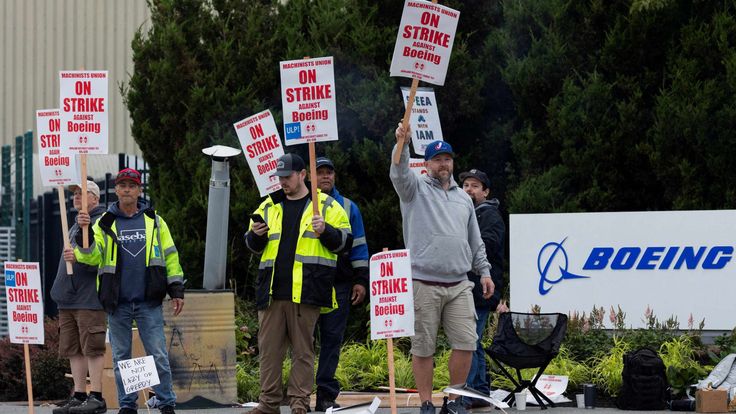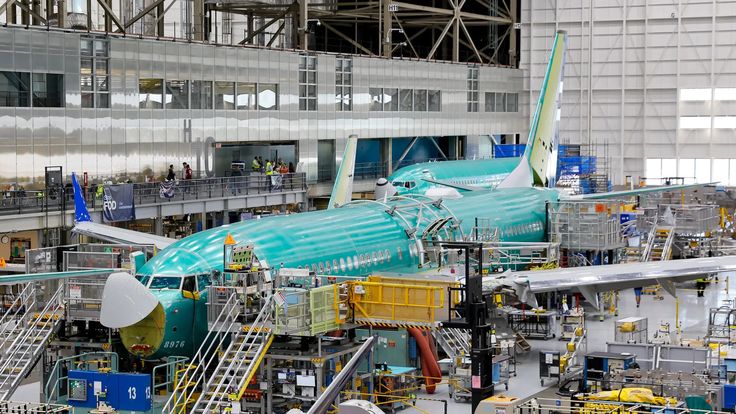
In a significant development for the aerospace industry, Boeing workers have decided to extend their strike after overwhelmingly rejecting a proposed wage agreement. This ongoing action has the potential to impact production schedules and deliveries, highlighting the growing tensions between labor unions and one of the world’s largest aircraft manufacturers.
The strike, initiated by members of the International Association of Machinists and Aerospace Workers (IAM), began as workers expressed dissatisfaction with their compensation and working conditions. The rejected wage deal aimed to increase salaries but fell short of the expectations set by the union members, who have been advocating for a more substantial increase given the rising cost of living and inflationary pressures.
Workers have cited a range of grievances, including stagnant wages, insufficient benefits, and concerns over job security. Many feel that their hard work during critical production periods, especially during the COVID-19 pandemic, has not been adequately recognized or rewarded. This sentiment is particularly pronounced as the aerospace sector begins to recover, with increased demand for commercial and cargo aircraft.
The IAM had negotiated the wage deal with Boeing in hopes of reaching a swift resolution. However, the proposal was met with backlash from workers during a recent vote. Union leaders emphasized the importance of listening to the voices of their members, stating that the overwhelming rejection signaled a strong desire for better compensation and treatment.
Boeing, for its part, has expressed disappointment over the outcome and is urging workers to return to the negotiation table. The company argues that the rejected deal was a competitive offer within the industry and included various incentives aimed at improving workers’ overall compensation packages. Nevertheless, with workers standing firm in their demands, the situation remains tense.
The strike comes at a critical juncture for Boeing, which has faced a series of challenges in recent years, including the fallout from the 737 MAX crisis and the effects of the pandemic on global travel. Production delays and supply chain issues have already strained the company’s operations, and the ongoing strike adds another layer of complexity to its recovery efforts.

Industry analysts are closely monitoring the situation, as a prolonged strike could lead to significant disruptions not only for Boeing but also for its suppliers and customers. The aerospace industry is interconnected, and delays in aircraft production can ripple through various sectors, affecting jobs and economic activity far beyond Boeing’s immediate operations.
Boeing’s stock has already shown signs of volatility in response to the strike, as investors weigh the potential impacts on the company’s financial performance. Analysts suggest that the longer the strike lasts, the greater the risk of lost contracts and delayed deliveries, which could further erode investor confidence.
As the strike continues, both sides remain entrenched in their positions. Union leaders are calling for solidarity among workers, encouraging them to stand united in their demands for better wages and working conditions. They argue that the strength of the union lies in its collective power, and that by standing together, they can negotiate a more favorable deal.
On the other hand, Boeing is reiterating its commitment to engaging with workers and finding a resolution that is sustainable for the company and its employees. The challenge lies in balancing the financial health of the company with the demands of its workforce.
In conclusion, the Boeing strike serves as a reminder of the broader labor movement currently gaining momentum across various industries. As workers increasingly advocate for fair wages and improved working conditions, companies like Boeing will need to navigate these complexities carefully. The outcome of this strike could set a precedent for labor relations in the aerospace sector and beyond, highlighting the ongoing struggle between corporate interests and the rights of workers. As the situation develops, all eyes will be on Boeing and its workers as they seek a resolution that addresses the concerns of both sides.